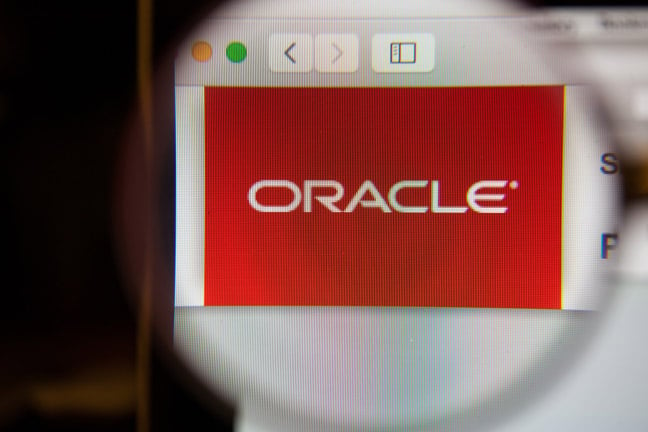City Council Megaproject To Spend Millions For Manual Work Oracle System Was Meant To Do

Europe’s largest local authority has allocated £5.3 million ($6.7 million) in next year’s budget to pay for manual workarounds deemed necessary after its effort to transition from SAP to Oracle ended in an expensive disaster.
Birmingham City Council (BCC) — which is effectively bankrupt owing to a £760 million ($961 million) equal pay claim, not helped by the wayward finance, HR, payroll, CRM and procurement software project — allocated the money for the 2024/25 budget in a recent report to Cabinet.
The report says the money was needed for “Oracle support costs: Transaction Services staffing for manual workarounds and backfill to support release of SMEs (Subject Matter Experts.)”
The troubled English council allocated £25 million ($31 million) to the overall project to fix the Oracle system for next year, included within the overall project estimates of £131 million ($165 million), which recently increased from an earlier £100 million ($126 million) forecast. The original business case has projected £20 million ($25 million) in project costs.
At the same time, the public authority is raising local taxes by 21 percent, cutting 600 jobs, dimming street lighting and reducing waste collection, among other levers it is pulling to reduce its deficit.
The council argues the extra £5.3 million ($6.7 million) is needed for manual workarounds because the cloud-based Oracle Fusion system was implemented with a number of bespoke customizations, some of which did not work. It is still struggling to produce auditable accounts.
One of the main culprits is the Bank Reconciliation System (BRS), which was supposed to record payments to and from the council. After the new software went live in April 2022, the finance team noticed errors on the BRS, which meant payments to and from the council had to be recorded manually to accounts, “creating an administrative backlog,” according to a report to the audit committee in May 2023.
A December 2023 report from the council’s official auditors estimated that an error in a modification led to unallocated transactions with a net value of £74 million ($93.5 million). The council is currently spending £500,000 ($632,000) per month hiring temporary staff to solve the problem.
Meanwhile, BCC is looking to buy more software to address its short-term problems.
"A specification process has been started for the replacement of BRS with standard Oracle functionality supported by specialist income management software. From procurement to implementation, it is estimated replacement of BRS will take up to 12 months once fully approved. It is likely that there will be no fully working cash system until early 2025. During this procurement manual workarounds will still need to be in operation," the audit report says.
But new third-party software is set to help the current Oracle implementation, which the council is working to make “safe and compliant” in order to file reports as the new financial year approaches.
BCC also announced last year it was working on a new solution design to reimplement Oracle in a more “out of the box” approach with few modifications, changing business processes to accommodate the software.
- Oracle's examplar win over SAP for Birmingham City Council is 3 years late
- Europe's biggest city council faces £100M bill in Oracle ERP project disaster
- Europe's largest city council runs parallel systems to cover Oracle rollout mess
- Oracle at Europe's largest council didn't foresee bankruptcy
- City council Oracle megaproject got a code red – and they went live anyway
The recent report from official auditors Grant Thornton stated: "Our current understanding is the focus is on a new Oracle high-level design, but we are not clear on how, when and by whom the other areas are being considered before the sign-off for a low-level design. The key risk is [the council] cannot afford to adopt Oracle processes out of the box."
In an Audit Committee hearing last week, Philip Macpherson, a recently appointed Oracle program lead for the Council, admitted his team was conducting “options analysis to genuinely weigh up the pros and cons around” reimplementing Oracle.
With costs mushrooming to £131 million ($165 million), including £5.3 million for manual processing next year, it is important to remember the project was initially expected to save the Council £26.9 million ($34 million) over 10 years, when compared with the previous SAP system. In March 2021, the council slashed that estimate to £10.9 million ($13.7 million) between 2022/23 and 2030/31. It included savings of £800,000 for the current financial year and £900k for the next, against an estimated Oracle cost of £4.3 million and £4.2 million ($5.4 million, $5.3 million), respectively.
It might be safe to say that ship has sailed. ®
From Chip War To Cloud War: The Next Frontier In Global Tech Competition
The global chip war, characterized by intense competition among nations and corporations for supremacy in semiconductor ... Read more
The High Stakes Of Tech Regulation: Security Risks And Market Dynamics
The influence of tech giants in the global economy continues to grow, raising crucial questions about how to balance sec... Read more
The Tyranny Of Instagram Interiors: Why It's Time To Break Free From Algorithm-Driven Aesthetics
Instagram has become a dominant force in shaping interior design trends, offering a seemingly endless stream of inspirat... Read more
The Data Crunch In AI: Strategies For Sustainability
Exploring solutions to the imminent exhaustion of internet data for AI training.As the artificial intelligence (AI) indu... Read more
Google Abandons Four-Year Effort To Remove Cookies From Chrome Browser
After four years of dedicated effort, Google has decided to abandon its plan to remove third-party cookies from its Chro... Read more
LinkedIn Embraces AI And Gamification To Drive User Engagement And Revenue
In an effort to tackle slowing revenue growth and enhance user engagement, LinkedIn is turning to artificial intelligenc... Read more

